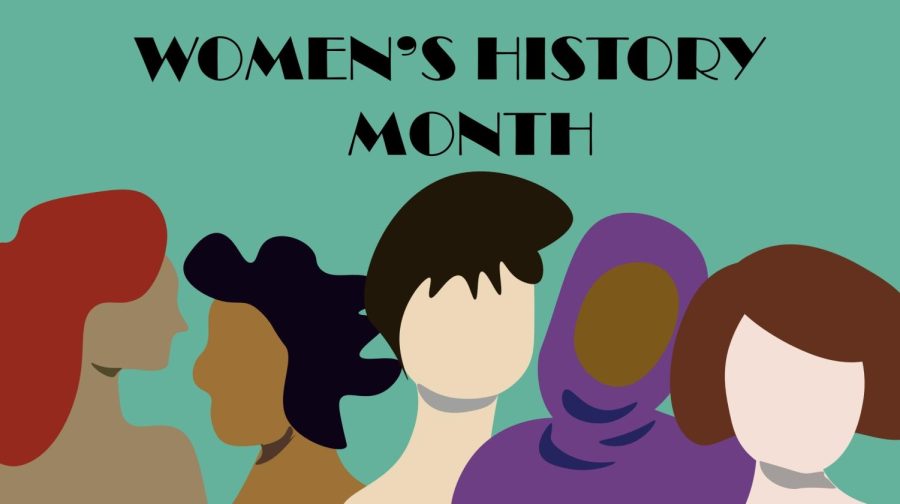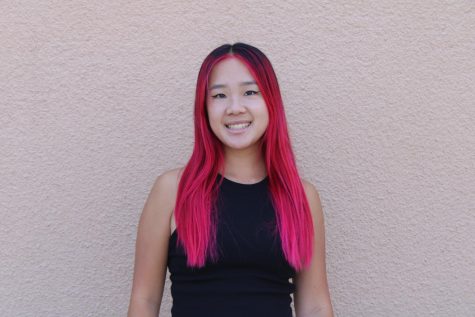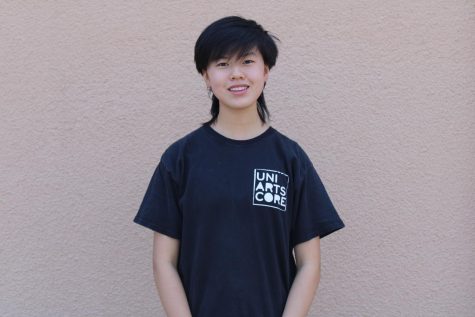National Women’s History Month at UHS
The goal of National Women’s History Month is also to acknowledge and celebrate the amazing women in our daily lives.
March 29, 2022
National Women’s History Month at UHS
Since 1981, the U.S. government has designated March as National Women’s History Month. Throughout the month, people all over the country recognize the achievements of prominent female figures in history, as well as the nation’s progress in closing the gender inequality gap. While the month focuses on the accomplishments of standout individuals who have initiated change on a national scale, the goal of National Women’s History Month is also to acknowledge and celebrate the amazing women in our daily lives.
In honor of National Women’s History Month, let’s look at a few girl-oriented groups and leading women on campus.
- She’s the First
She’s the First is an international advocacy group that is fighting for gender equality and increased educational opportunities for women by putting girls’ voices at the forefront of their discussion and supporting grassroots organizations around the world. At UHS, the She’s the First club helps generate funds for its parent organization and works to raise awareness of the importance of girls’ education in modern society.
“Some initiatives we have taken include hosting meetings about feminist causes and raising money for girls’ education through fundraisers,” club president and senior Jasmine Nourisamie said. “We also hope to soon have a period product drive and donate items to women in homeless shelters.”
While the club and organization aspire to build a better world for women, Nourisamie recognizes that there is still a lot of work to be done in the fight for gender equality, especially in underdeveloped countries. Women’s History Month serves as a reminder of their mission and what they still have to accomplish.
“For me, Women’s History Month is a period of self-reflection upon which I can celebrate the achievements of women throughout history and recognize the progress that still needs to be made on the road to equality,” Nourisamie said. “One particular woman who I greatly look up to is my late great aunt. She worked hard to raise all of her children as a single mom after being abandoned by her husband [and] her story is one of great resilience.”
- Code Red
Code Red is a nonprofit organization that promotes period wellness and destigmatization through literacy and advocacy. On campus, the Code Red club does its part to combat period poverty—the inaccessibility of menstrual products, sanitation facilities and inadequate education on menstruation—by raising awareness for related issues such as women’s education and resource accessibility.
“One of our more local goals has been getting access to free period products at schools—which recently got passed in California,” club advocacy director and junior Leah Parvini said. “Code Red works with multiple organizations to not only help raise awareness for period poverty, but also provide products to people in need. In the past few years, we’ve done period packing parties with donated period goods to donate to other organizations.”
In addition to menstrual health advocacy, Code Red members also hope to alleviate the impact of other widespread issues that women regularly face.
“There are so many issues that women face that I feel get forgotten and Women’s History Month provides the opportunity [. . .] to reveal many unseen issues like access to period products,” Parvini said.
- StempowerHer
StempowerHer is a service club dedicated to teaching girls a variety of math and science concepts. By offering students the resources to expand their knowledge in these subjects, the club hopes to broaden the scope of possible career opportunities for women. In a society where women have historically been discouraged from pursuing careers in S.T.E.M. (science, technology, engineering, and mathematics), members work to confront the misogyny, discrimination and imposter syndrome that many women face in S.T.E.M. institutions.
- Girl Up
The Girl Up club functions as a chapter of the international United Nation-affiliated Girl Up organization and aims to empower women through global initiatives. The club hosts fundraisers for groups such as the Afghan Women Emergency Funds and the Deep Organization of India, according to club presidents and seniors Allison Yue and Sophia Wang.
“I’ve always been a strong proponent for equality, particularly in women’s rights,” Yue said. “Girl Up’s main goals have always been to inspire other girls to be activists for women’s rights and use that unity to help women in our vicinity and developing countries.”
Some common issues that the club hopes to address include providing basic hygiene and clothing for women in need, fighting gender-based violence and increasing the literacy rates of women worldwide. Currently, the Girl Up club is selling tote bags to raise money for the Deep Organization of India, which strives to broaden education for women in rural parts of India.
- Girls Who Code
Girls Who Code is a S.T.E.M.-oriented club that focuses on providing the resources for girls to study computer science and learn how to code on campus. Its mission is to close the gender gap in technology and related S.T.E.M. fields and teach members a variety of programming concepts.
- All for BIPOC
In honor of Women’s History Month, the All for BIPOC club hosted a presentation on intersectional feminism and a card writing event for displaced women. Given that many people in homeless shelters are women of color, the club stresses the importance of looking at larger issues through a smaller lens.
“Women’s History Month is a time to recognize the role of women in history and modern-day, as women have often been systematically disadvantaged as victims of gender inequality,” sophomore and club president Elizabeth Choi said. “Oftentimes, women of color are disproportionately affected by many gender inequality issues. It is important to acknowledge the injustices women of color have faced throughout history, as well as address intersectionality in feminism.”
Although the club focuses mainly on racial equity, many of their initiatives are closely linked to women’s issues and Choi notes that advances in racial equity are dependent on progress in both areas. Choi looks up to United States representative and activist Alexandria Ocasio-Cortez for her assertive and confident personality and involvement in human rights issues.
- Girls in Sports
UHS exemplifies the nation’s progress in supporting female athletes through its various girls sports programs. Of the school’s 24 conventionally organized sports teams, there are 12 girls teams. Over the course of UHS’ history, each program has competed at a highly competitive level and produced many stellar athletes.
This year, despite the challenges of the pandemic and ongoing setbacks, many athletes came together to strengthen the school’s sports culture. The product of their resilience was a connected community of determined athletes. Not only did several teams experience unprecedented wins, but many athletes were also recognized for their commitment to their sport.
For the first time in school history, UHS fielded a girls flag football team. The team, founded by senior Kate Stenta and sophomores Leah Schulman and Riley Hertstein, made league history by winning the inaugural Matt Leinart Flag Football championship. Since then, team members have been working closely with the Matt Leinart Flag Football league and even Under Armour’s UANext Football program to raise awareness for female athletes in flag football.
In an individual post-season tournament, sophomore Leigh Chien represented girls golf and secured the State Champion Title.
Additionally, the UHS pep squad placed first in their division at the national United Spirit Association competition and the color guard team placed second at the Winter Guard Association of Southern California signature show competition. Though these sports are not exclusive to female athletes, both teams are led by girl members.
“The girls athletic community here is really uplifting, and I really admire how athletes across sports support each other,” Girls’ Sports Commissioner and senior Yade Cinar said. “In the last twenty years, there has been so much progress in women’s sports—at the high school level and above—and it’s really validating to see how skilled our own athletes are and the potential they have.”






